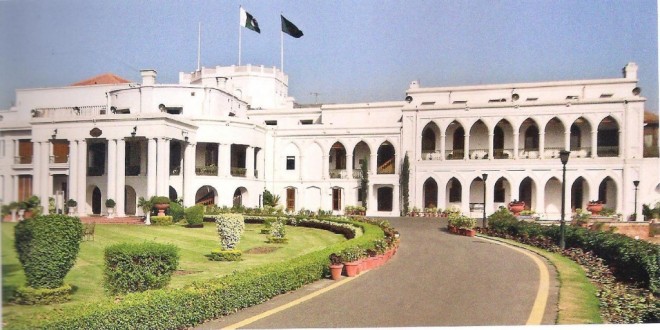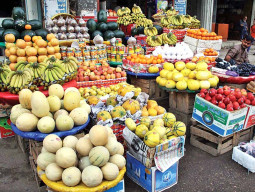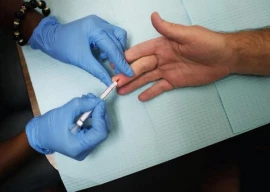
The Punjab Governor House is no longer exclusive to the ruling elite or politicians as the government has decided to turn the historic structure into a museum, The Express News learnt on Tuesday.
Earlier, a committee formed to decide the fate of heritage buildings, proposed that the Governor House be turned into an art gallery or museum. Ultimately, relevant authorities leaned towards the latter
An official confirmed this development. However, it has not yet been decided as to what kind of artifacts or exhibits will be displayed. One of the country’s oldest and the most visited museums is just a few furlong away from the Governor House on Mall Road.
The museum has a large collection of pre and protohistory, coins and arms. It also houses a collection of postage stamps as well as miniature and contemporary paintings. In addition, there are manuscripts and other relics from the Islamic, Hindu, Buddhist, Jaina and Gandhara eras, along with artifacts of the Pakistan Movement.
However, archeology experts have said that the Punjab Governor's House is a museum in itself as it is among the few buildings with such a rich heritage. A senior official of the provincial archeology department said the building has been used as the house of the Punjab Governor for almost 150 years.
The property is a rich blend of Mughal, Islamic and British architecture as different sections of the Governor's House were built in different eras over four centuries. It has a large collection of historic artifacts, like souvenirs and gifts presented by different heads of state and a sizable archive of historic pictures, paintings, and other exhibits.
“Instead of collecting historic exhibits from other places, the government should display available artifacts,” he suggested.
The official said the Governor House has different agriculture research farms that are being maintained by different universities. He added that people, who have some farming interest, can also visit these farms, but strictly under the supervision of a guide and security as unattended tours can harm these facilities.
The Supreme Court of Pakistan (SCP) has formed a special committee of experts to ensure the safety of heritage sites as over a dozen of them are located along the Lahore Orange Line Metro Train project.
A couple of days ago, an official disclosed that members of this special committee visited the Governor House and expressed their astonishment over how well-kept the 400-year-old structure is. "The Governor's House should have wooden platforms to preserve the maintained floors of the building," a senior member of the committee said. He made this comment when informed that the floor under his feet was some 400 years old.
A family, who visited the Governor's House for the first time last Sunday, also expressed great enthusiasm at the historic property. Muhammad Shafqat said the government should open some sections of the building for the general public, besides allowing people to use the lawns and other recreational facilities.
He also demanded authorities make arrangements for guided tours as they would help citizens learn about the significance of the historic building.
Although the Governor's House administration has arranged some golf carts to facilitate visitors, public expectations are quite high and citizens want to experience how governors live and work at this heritage property.
Prime Minister Imran Khan had formed a 12-member committee under the chairmanship of National History and Literary Heritage Minister Shafqat Mahmood. The committee members includes architect Nayyar Ali Dada (Lahore), artist Rashid Rana (Lahore), businessman Shamoon Sultan (Karachi), architect, educator Omer Hassan (Lahore), scientist Dr Faisal Khan (Peshawar), (retd) civil servant Omer Khan Afridi (Peshawar) and designer Naeem Safi (Peshawar), visual artist Akram Dost Baloch (Quetta), educationist Muneeza Hashmi (Lahore), visual artist Adeela Suleman (Karachi), architect Samar Ali Khan (Karachi), heritage consultant Marvi Mazhar, Art Divvy Foundation Director Asma Rashid Khan and National History and Literary Heritage Division Secretary Engineer Amir Hassan.



1731655243-0/BeFunky-collage-(61)1731655243-0-165x106.webp)

1731648084-0/Untitled-design-(57)1731648084-0-270x192.webp)











COMMENTS
Comments are moderated and generally will be posted if they are on-topic and not abusive.
For more information, please see our Comments FAQ